So much happened last year that it would be impossible to include every big event in one small pictorial. So, some of what took place was left out. However, the following is at least representative of a rough year, rougher even than 2020 when the Covid-19 first hit. Hopefully, we can cherish the good and learn from the bad. After what we’ve been through over the past two years, we could sure use a much better 2022. Good luck and God bless.
January
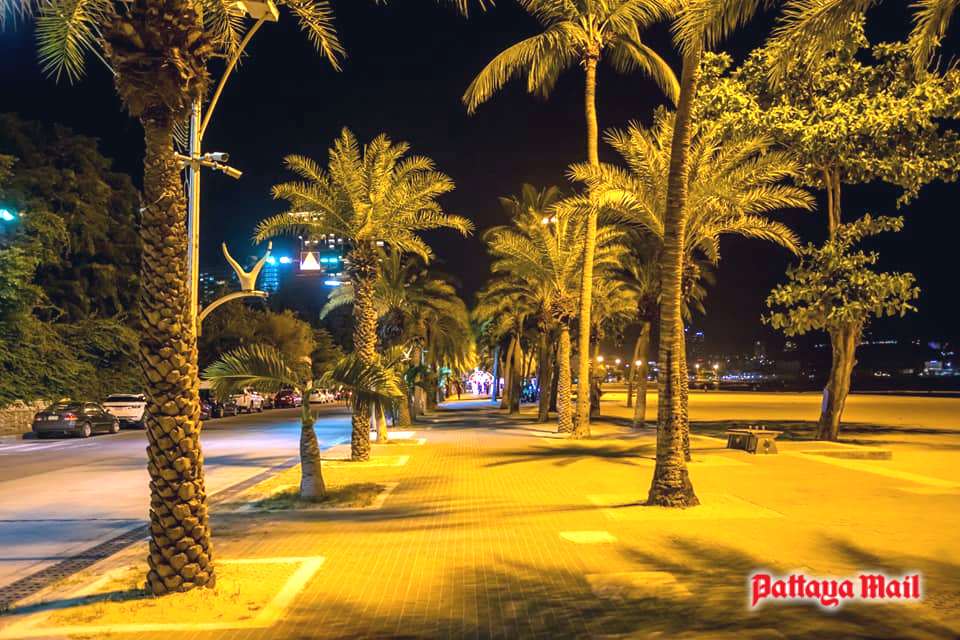
2021 began like 2020 ended, with empty streets and little to do after dark. Although not officially a lockdown, bars, restaurants, massage parlors and the 24-hour convenience stores were closed after 10 p.m. Even the New Year’s Eve fireworks were canceled. There was no curfew, but there was no need to go out when there was nowhere to go.
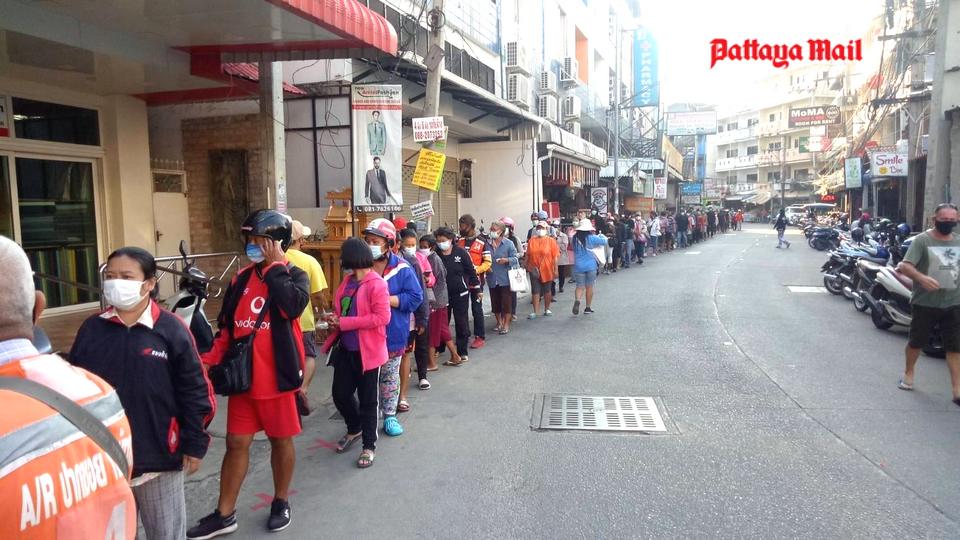
As the Covid-19 pandemic edged closer to its second year, the toll it took on the economy was disastrous. As businesses closed at an alarming rate, many were left unemployed and forced to survive on donated food after waiting in increasingly long food lines.
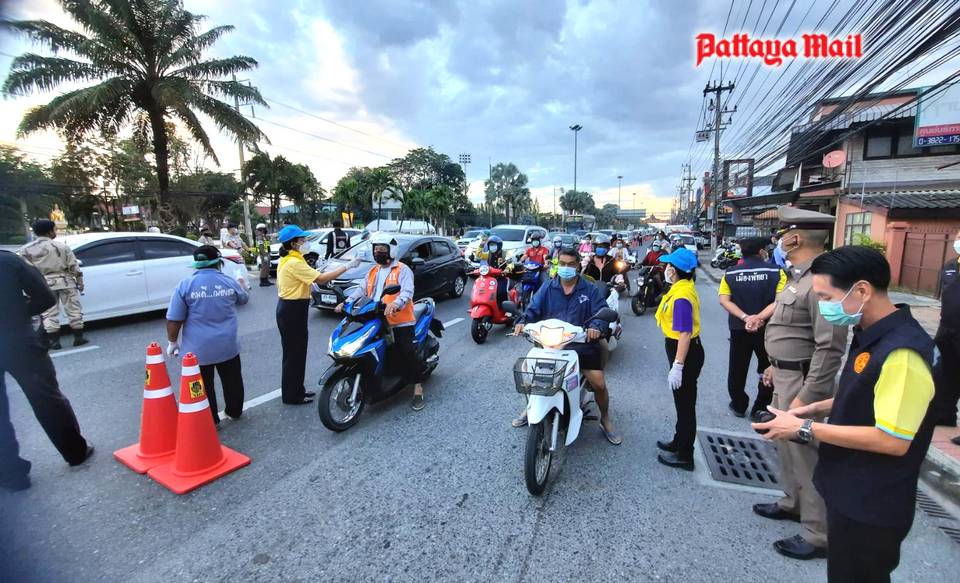
Pattaya’s “this is not a” lockdown continued in January – Pattaya’s checkpoints stopped vehicles to screen people for fevers, check for illegal aliens, inquire why motorists were traveling, and check for the required government-certified travel documents to leave the five coronavirus hot zones for interprovincial travel.
February
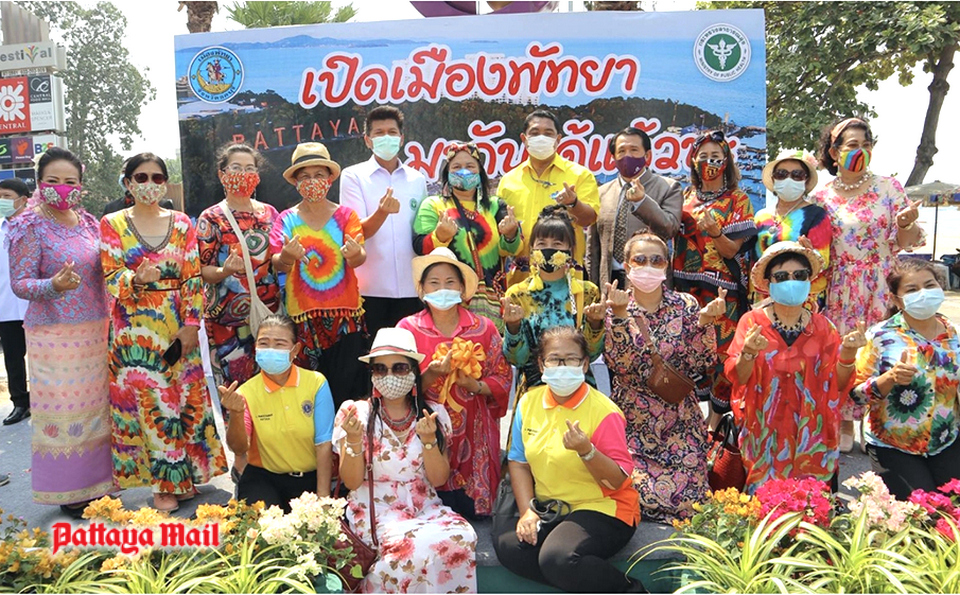
Seemingly out of nowhere, government officials declared the pandemic was under control. “Welcome back!” Thailand’s deputy health minister announced February 1. “Today we declare Pattaya officially open again,” Mayor Sonthaya said. Government and medical officials patted each other on the backs for working together to bring the Covid-19 second-wave outbreak under control in five weeks.
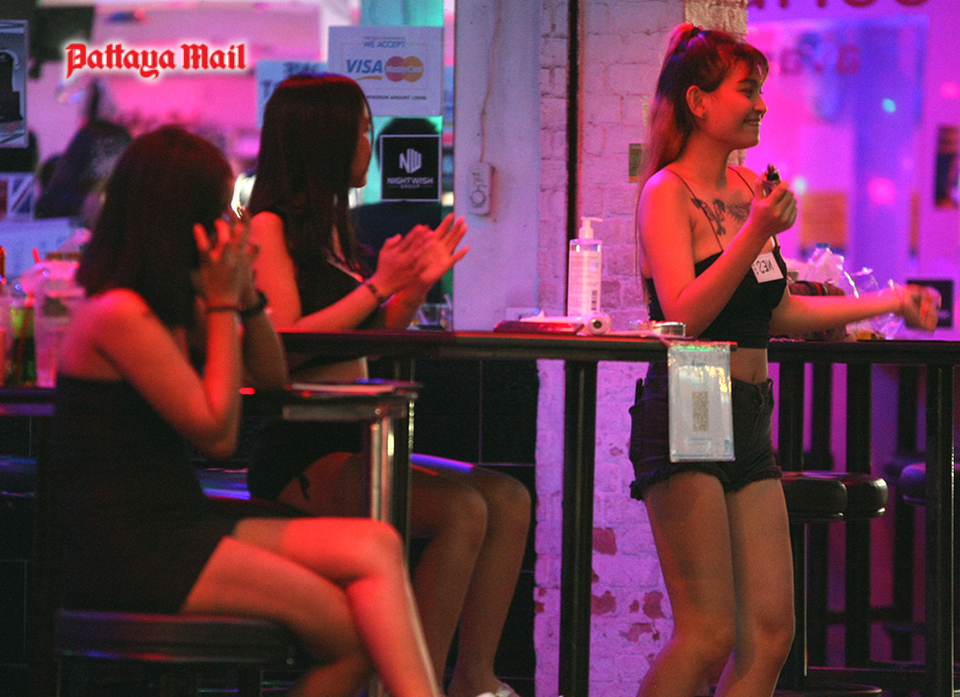
Chai Yo! International visitors and bar owners celebrated after watering holes across the city reopened following the end of Pattaya’s second shutdown. Even though the bars opened with disease-prevention protocols, such as checking temperatures and providing hand sanitizer, by then most of the staff had gone home upcountry, not believing more empty promises.
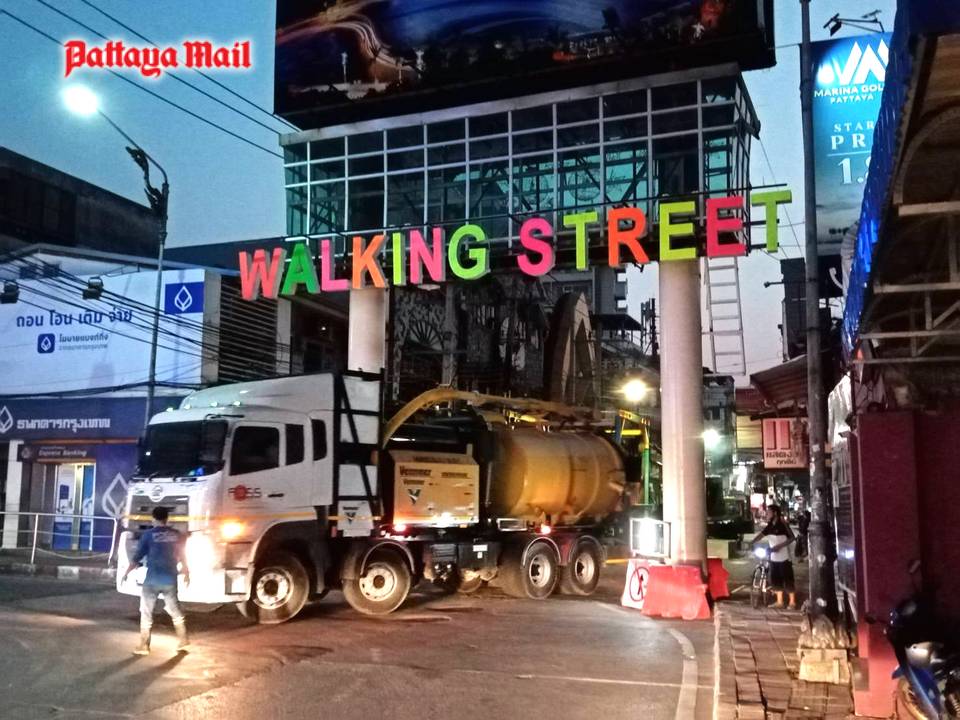
Late one night in early February, seemingly when no one was looking, heavy machinery converged on Walking Street to begin digging up the street to bury overhead wires. Undeterred, bars along Pattaya’s most famous street opened, but with few customers. Covid-19 kept away all but the most adventurous.
March
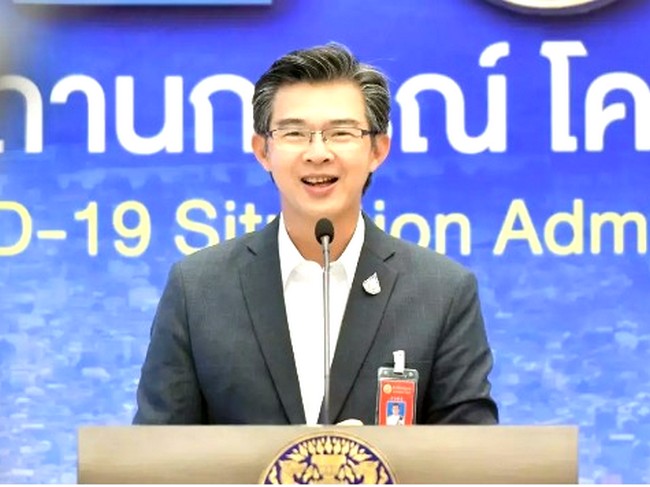
This face, sometimes with a mask, sometimes without, became a familiar figure. A spokesman for the CCSA (Thailand’s Center for Covid-19 Situation Administration) provided daily updates, sometimes good, mostly bad. The CCSA gained incredible power during the pandemic, perhaps too much power, for it was this administration that determined lockdowns, whether restaurants and entertainment venues could operate, curfews, alcohol sales and a number of other decrees that controlled how we lived during the Covid-19 devastation.
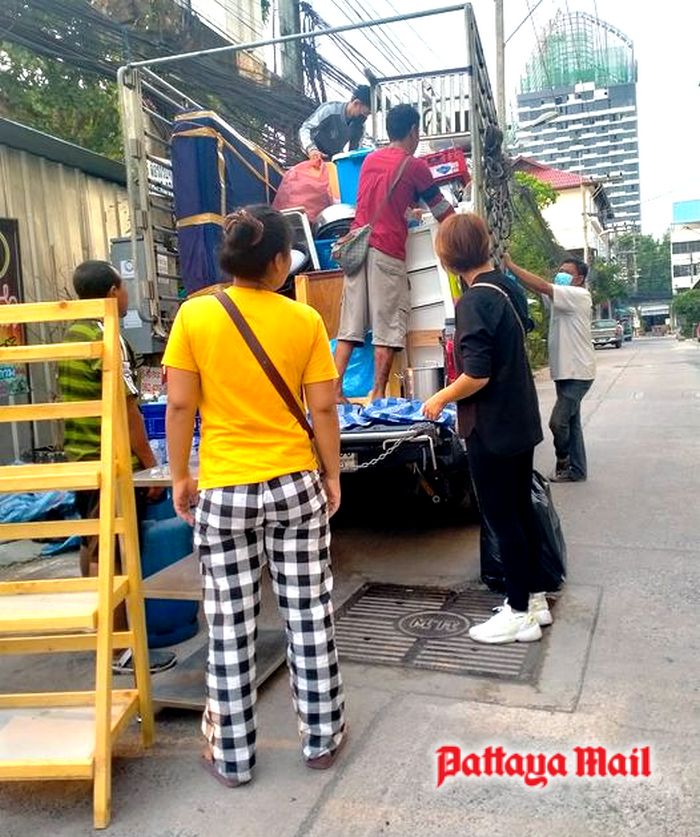
Staring at a bleak future, many service workers decided to cut their losses and go home upcountry. Before long, Pattaya became a ghost town.
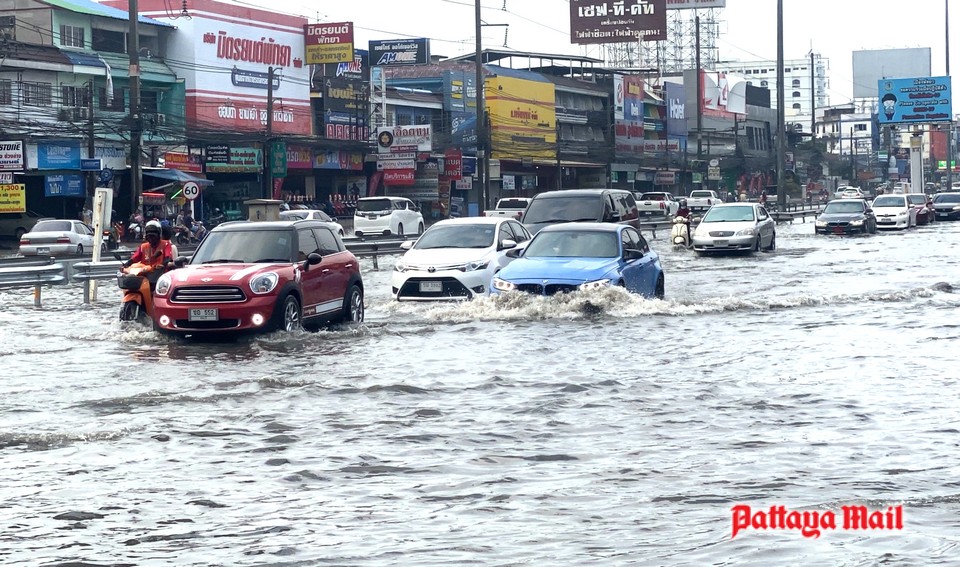
Mother Nature wasn’t deterred – she let loose with monsoons and floods, the likes of which hadn’t been seen for decades.
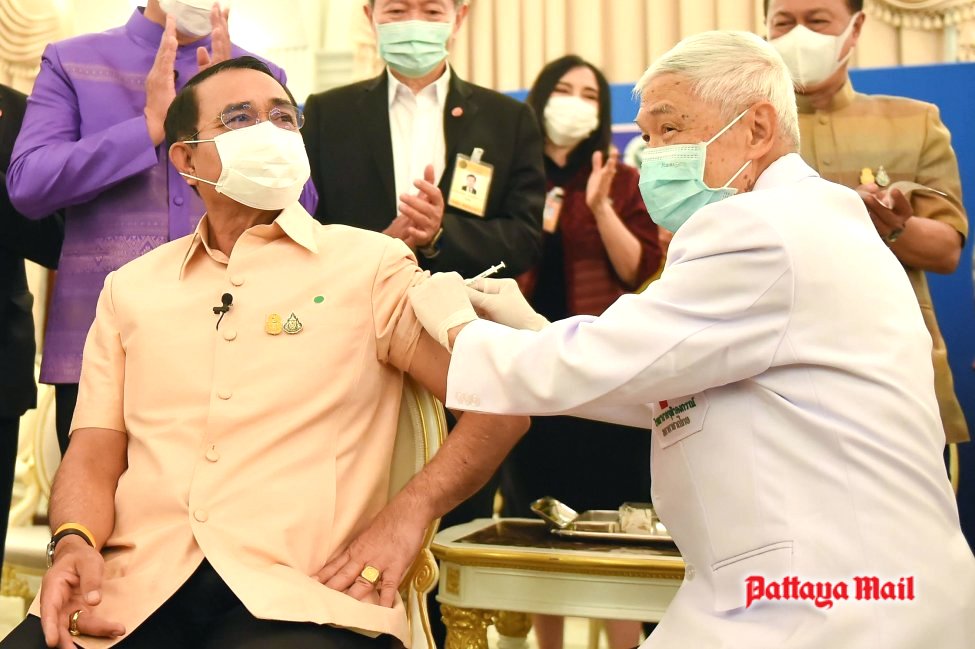
When the first lot of vaccines finally arrived, Prime Minister Prayut Chan-ocha made a show of his first jab of AstraZeneca’s Covid-19 Vaccine at Government House, sending a strong message to the rest of Thailand.
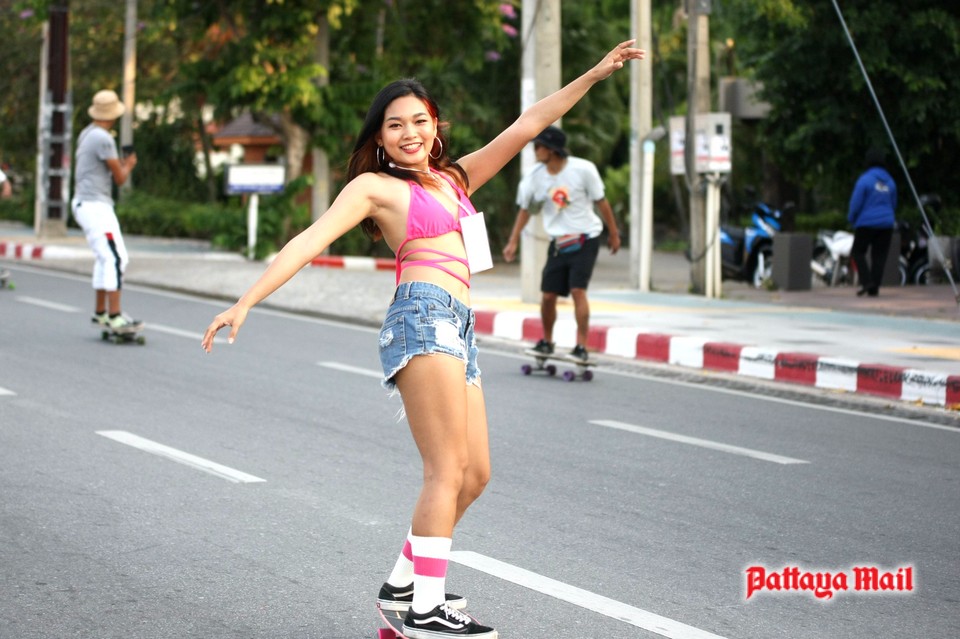
Trying to lure domestic tourism to help the sagging industry, Pattaya hosted the first-ever Bikini Surf Skate around Second and Beach roads. The event seemed successful at first, but someone forgot to mandate wearing a helmet resulting in an unreleased number of injuries.
April
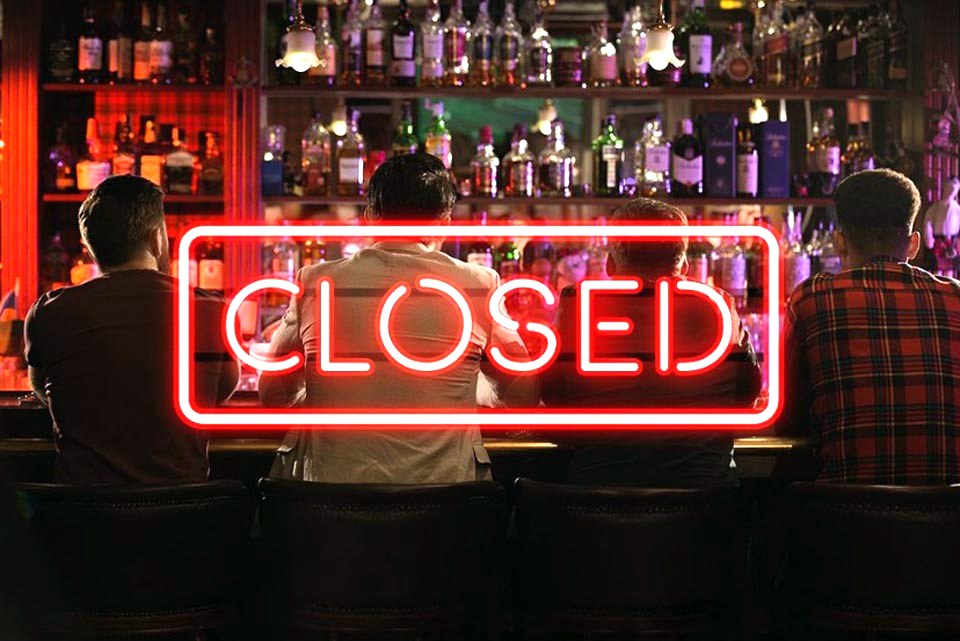
Along came the alleged 3rd wave in early April when the government ordered bars, pubs, clubs, massage parlors and similar businesses closed. Despite angry protests, eight months later, all of the bigger entertainment complexes remain closed.
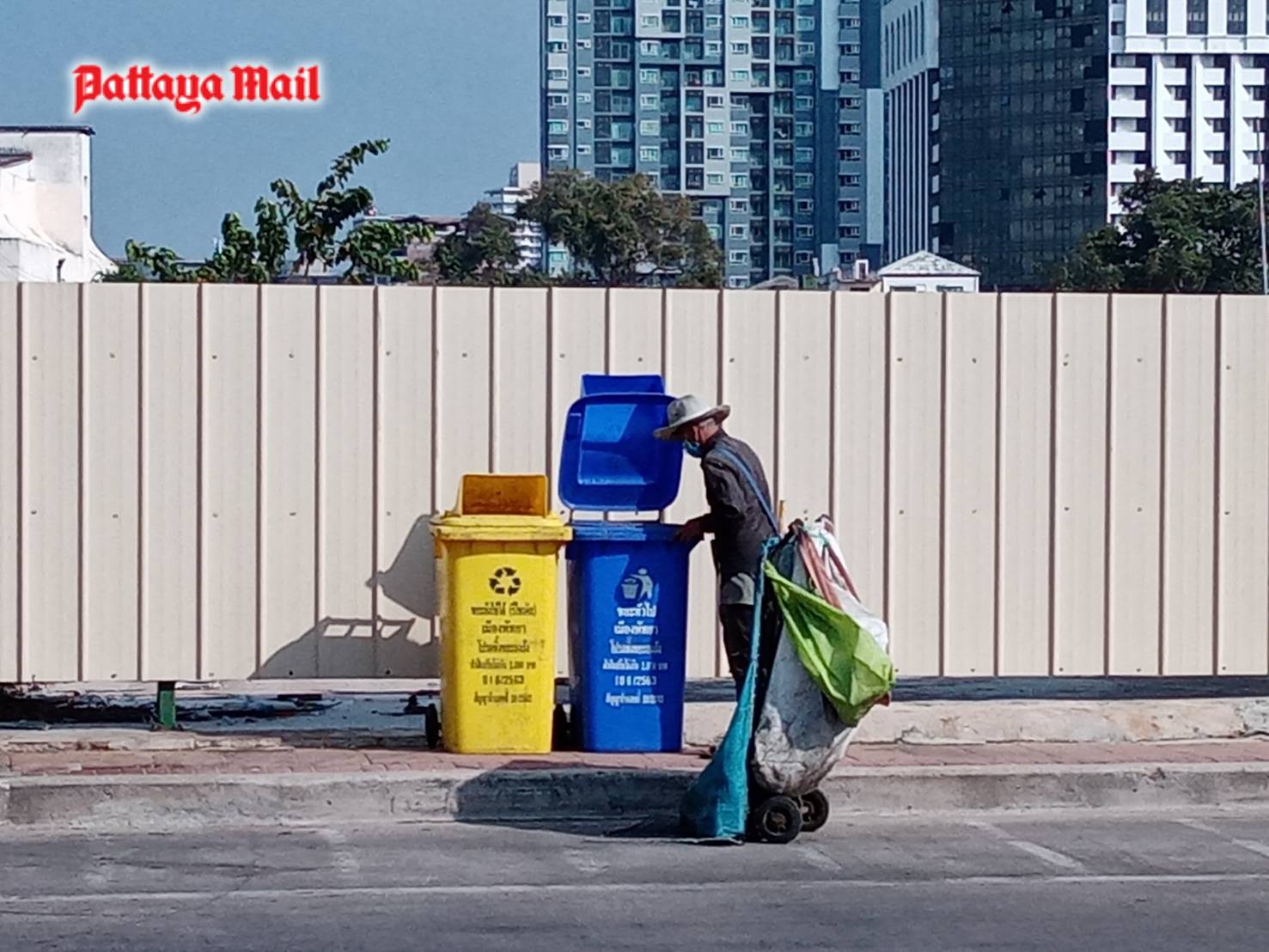
As the pandemic continued unabated, destroying the economy, many who once had good jobs were found rummaging through the garbage bins.
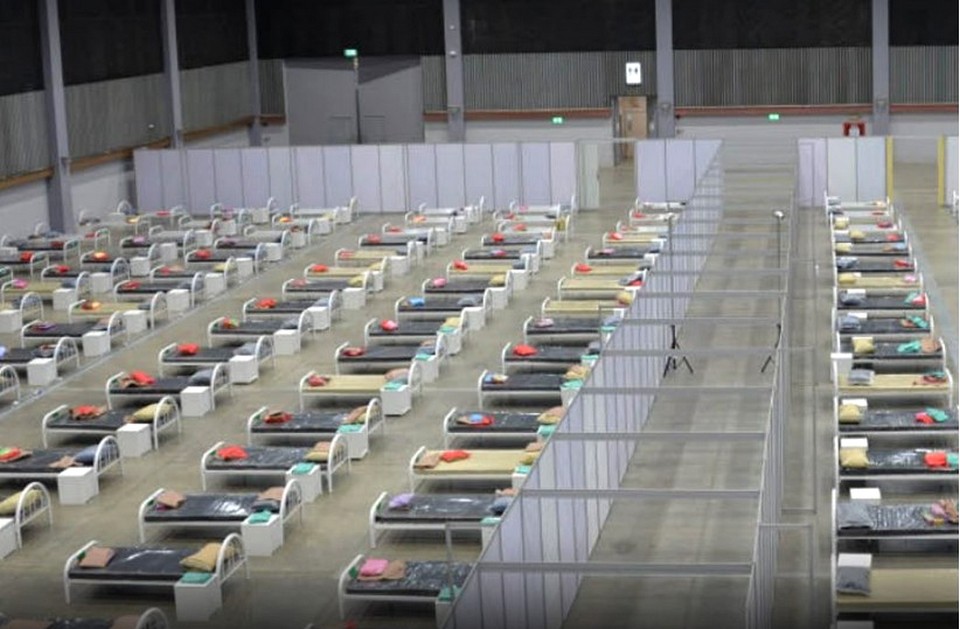
Field hospitals began springing up as hospitals became full and beds scarce.
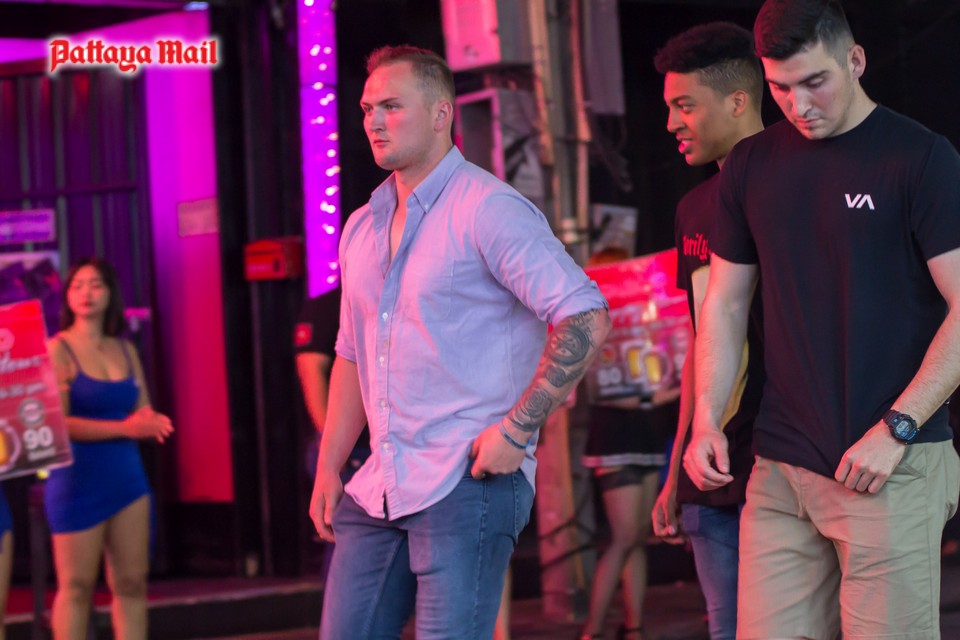
The Americans are coming, the Americans are coming – by sea! On April 21, city officials announced that the Cobra Gold joint naval exercise – delayed from the spring – would take place in August, bringing shore leave for up to 2,000 U.S. forces. All sailors would be fully vaccinated and all the city had to do was fully vaccinate 70% of Pattaya’s entire population. That was the last we heard of it. With no official announcement, August came and went without the U.S. Navy.
May
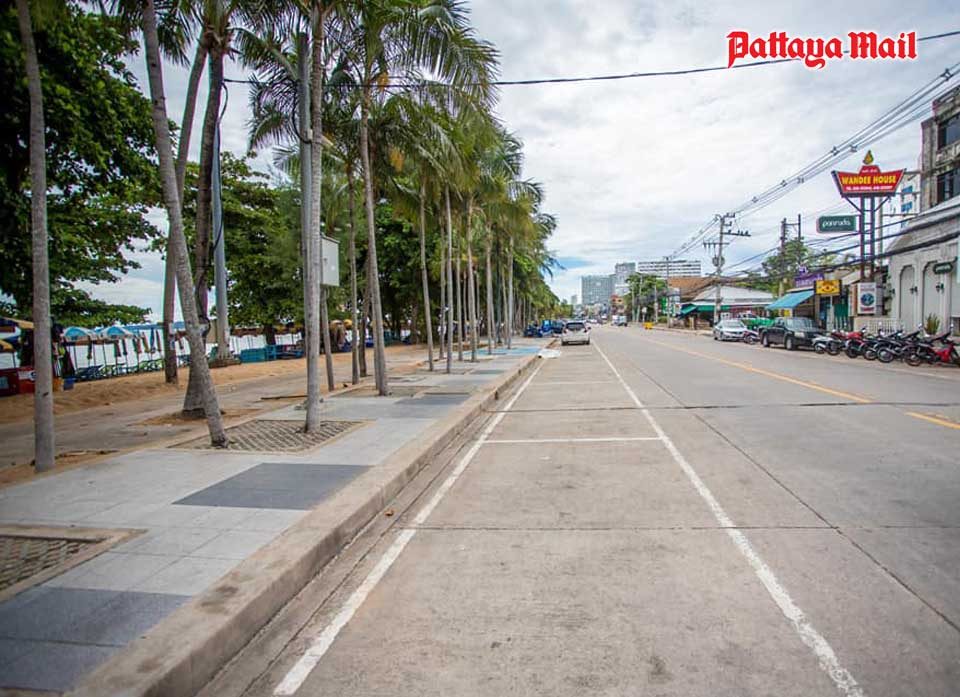
Thailand’s most famous and infamous seaside resort became a ghost town. When the government and province-specific Covid-19 mitigation orders canceled nearly all forms of relaxation, what counted as leisure took a huge hit. The detailed no-no list included virtually anything pleasurable you could think of and some activities you probably couldn’t.
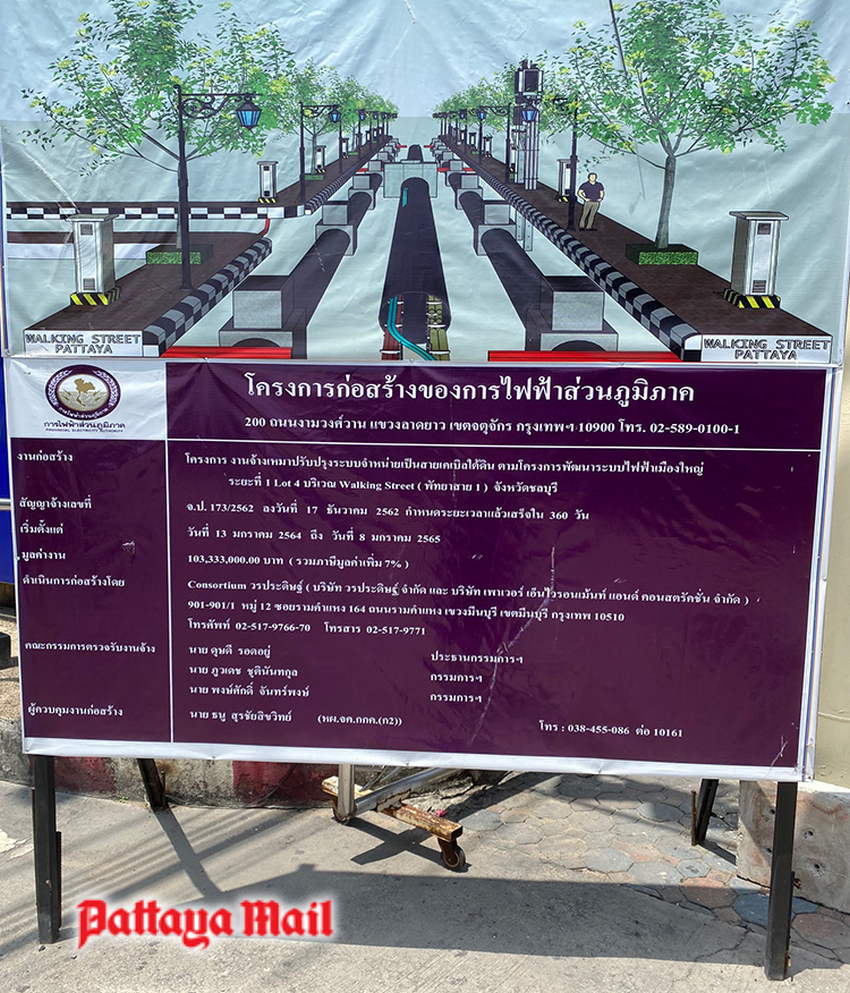
Doomsayers continued to predict the last nails in Walking Street’s coffin when an innocent-looking notice board appeared at the entrance to Pattaya’s most famous landmark. It carried the Provincial Electricity Authority logo with Thai text which promised that underground cables would replace the splurge of overhead wires that have hitherto lit up the bars and clubs. However, the accompanying futuristic drawing was devoid of any sign of nitery entertainment and encouraged the idea of a wholesome and green future.
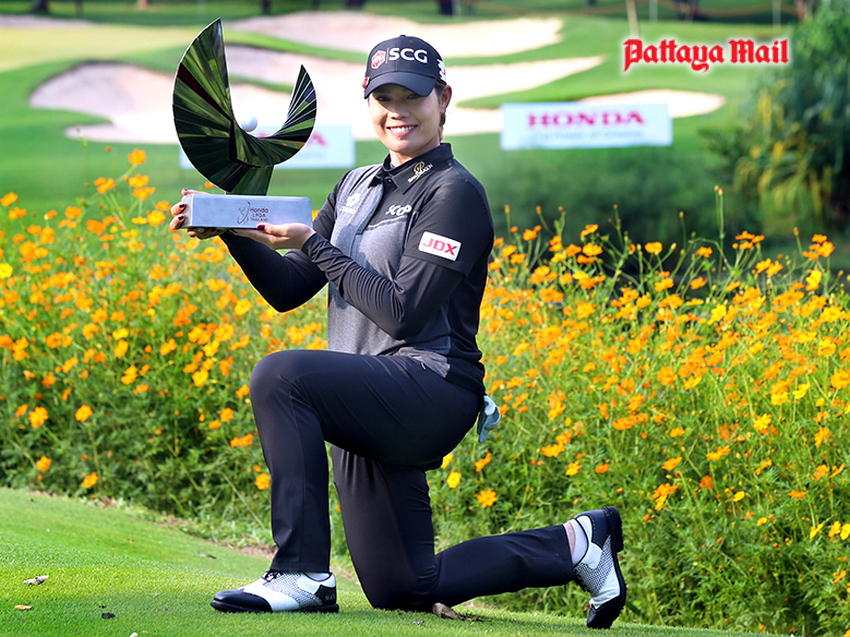
Life wasn’t all doom and gloom. Ariya Jutanugarn birdied the last hole to cap her amazing comeback to win this year’s Honda LPGA Thailand 2021, played without spectators through May 9 at Siam Country Club.
June
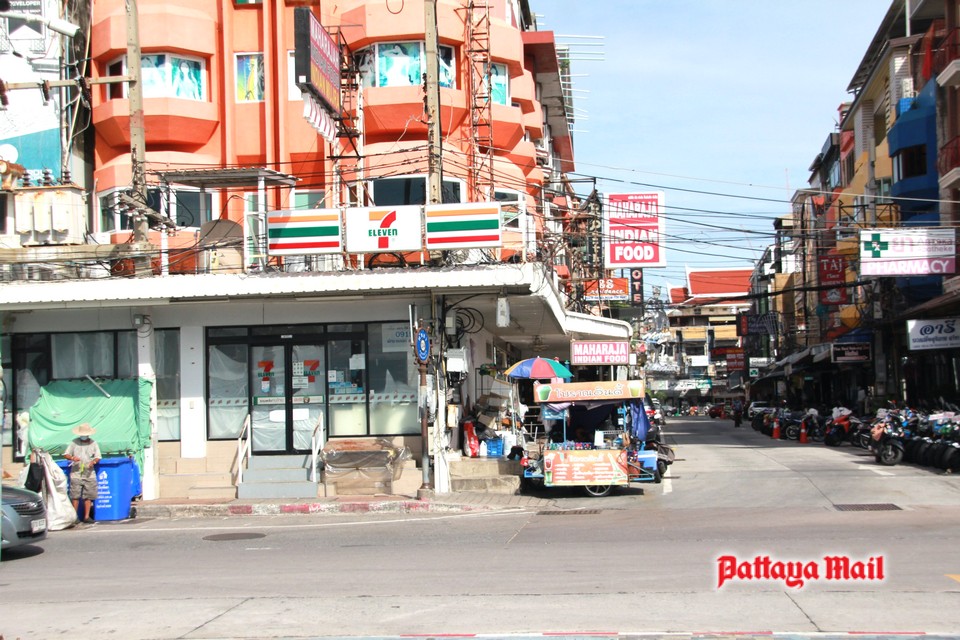
When the Prime Minister stated that the government was determined to reopen the country in 120 days, with major tourist provinces reopening gradually when they were ready, many local business leaders said four more months of complete shutdown would be a death sentence for Pattaya. More than 80 percent of the city’s service businesses had already closed, many permanently. At the time of this writing in December 2021, we passed those 120 days over two months ago and we still aren’t fully reopened.
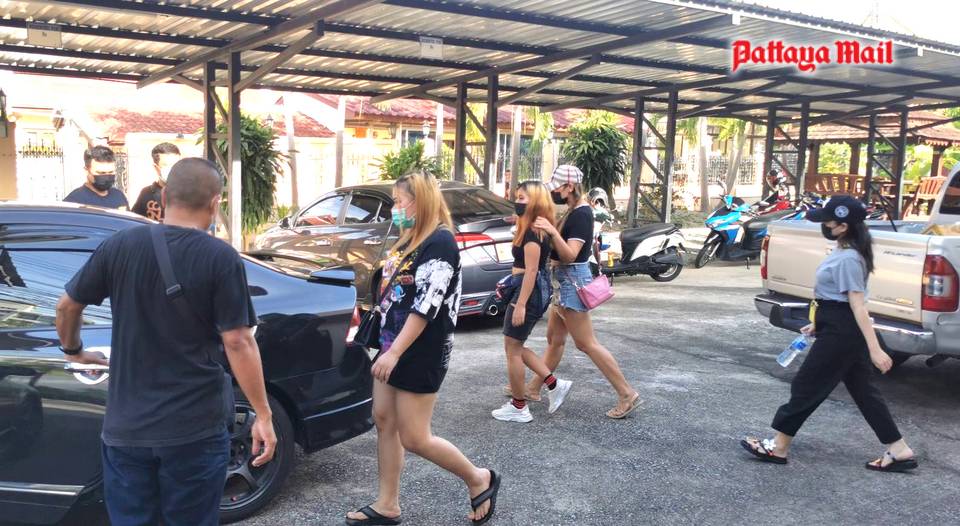
With bars and entertainment venues closed, some enterprising night workers turned to the internet. On June 23, police raided a closed gentlemen’s club on Thappraya Soi 15 and arrested 29 Thai women and a foreign man who were live-streaming to YouTube. Police said the PG-rated show wasn’t illegal, but putting 30 people in one small area was a violation of the emergency decree’s prohibitions against group gatherings. They always find a way.
July
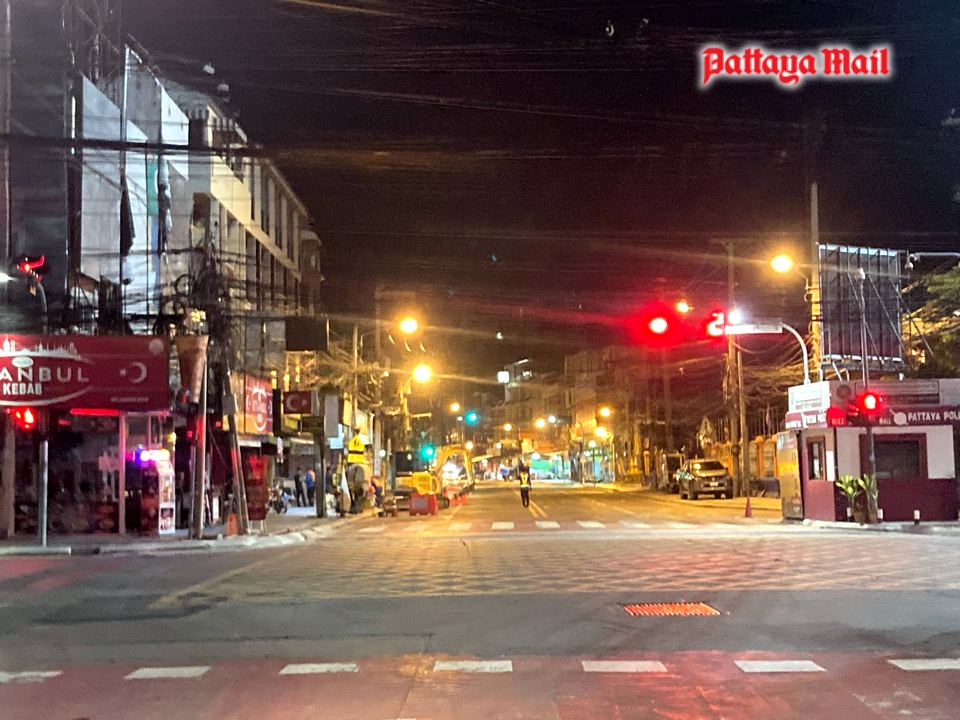
From Beach Road to Third Road, South to North Road, streets emptied after 9 p.m. July 13, the first official night of a voluntary curfew that, in truth, was hardly voluntary. It was déjà vu all over again as Pattaya fell silent under the second night-time curfew in a year, bringing utter stillness to an already quiet city.
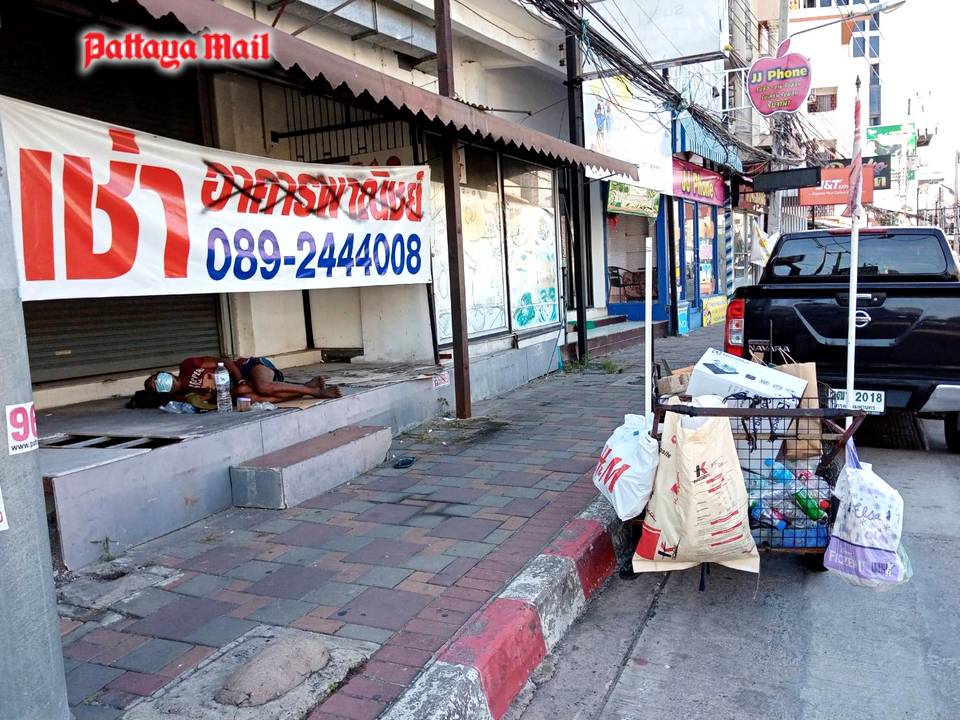
Homelessness was yet another devastating effect brought on by the pandemic and the oppressive measures taken to battle it.
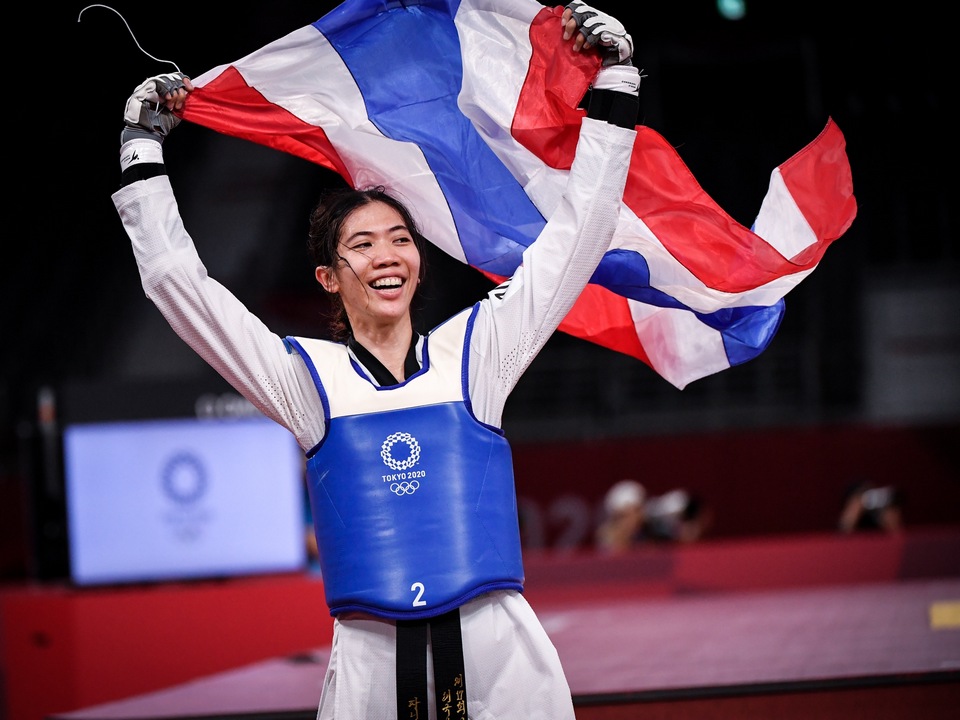
World No 1 Panipak Wongpattanakit pinned a new chapter in the Thai history books after she became the Kingdom’s first taekwondo exponent to capture an Olympic gold medal in the Japan 2020 Olympics on July 24, 2021. That’s not a typo; the 2020 Summer Olympics were postponed by the pandemic, but the name remained.
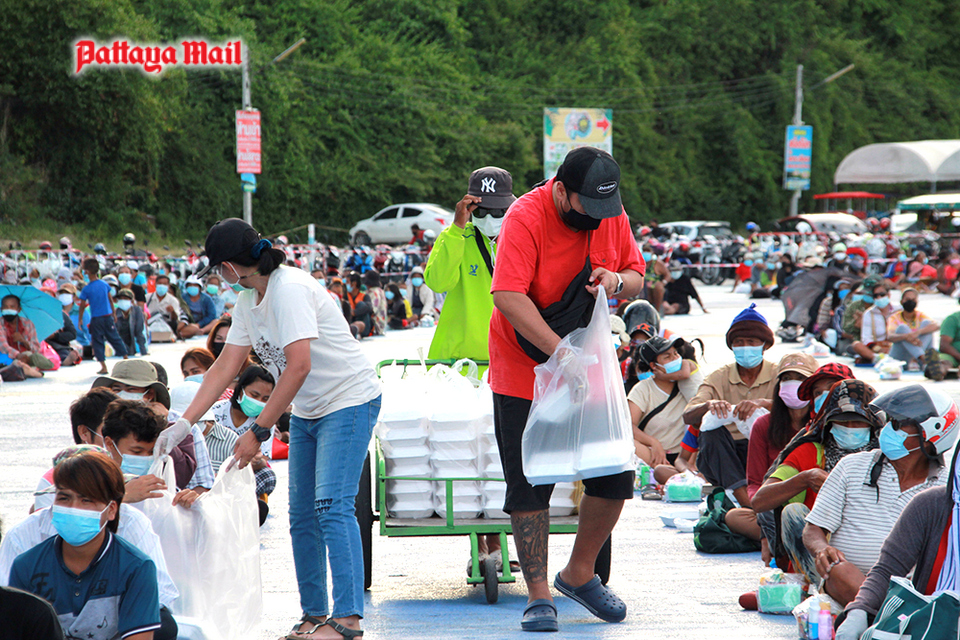
As the lockdown continued, desperate measures were needed to keep people from starving. Food lines became longer as members of the public and private sector arranged food handouts for thousands of people throughout the greater Pattaya area, and shown here at the Bali Hai Pier. In June, the government told of opening in August. In July, Sept. 1 became the target date to open, even though that date was less than the PM’s 120 days. Hungry residents began to see through the charades, and how no one could know how or when the pain would end.
August
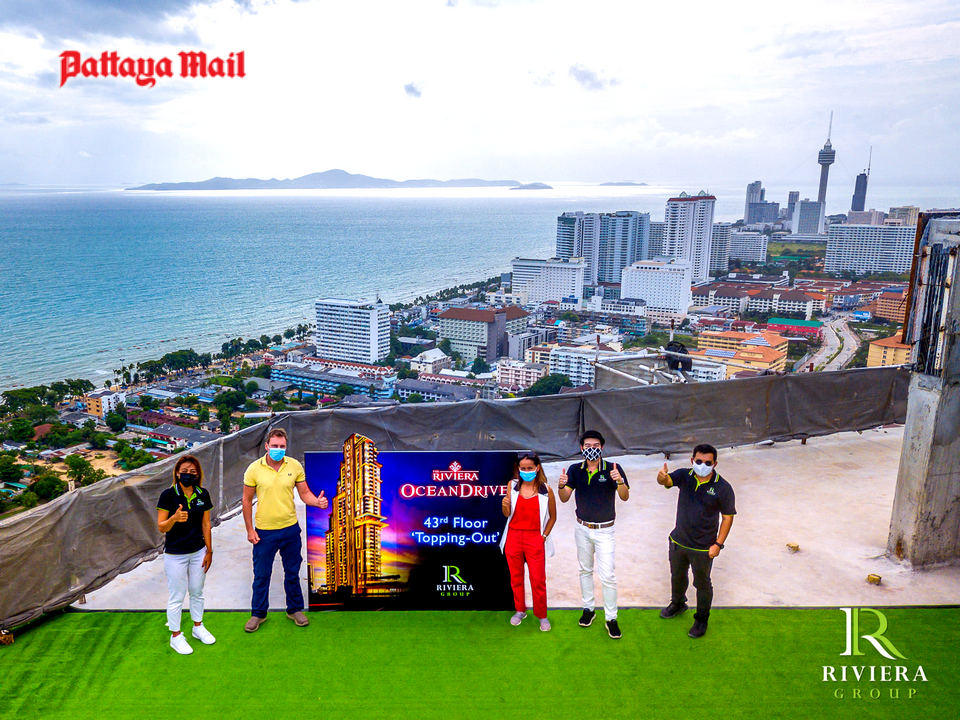
Optimistically looking toward the future, the Riviera Group took a moment to celebrate in limited Covid numbers reaching the top of their latest project, Ocean Drive. During the pandemic, Winston and Sukanya Gale and staff spent hundreds of thousands of baht to help feed people most affected by the economic devastation.
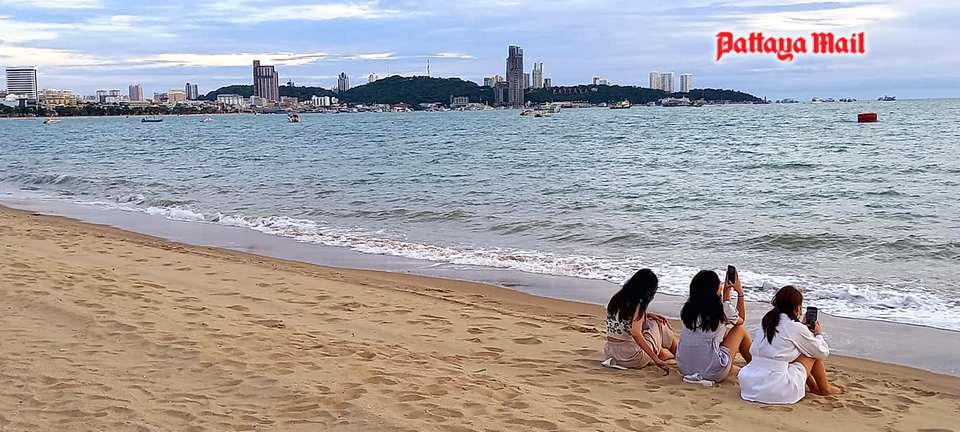
By August 21st, it became clear there was no way Pattaya would reopen by Sept. 1. Any new date for Pattaya’s reopening remained vague, hidden behind red tape and the whim of new coronavirus variants.
September
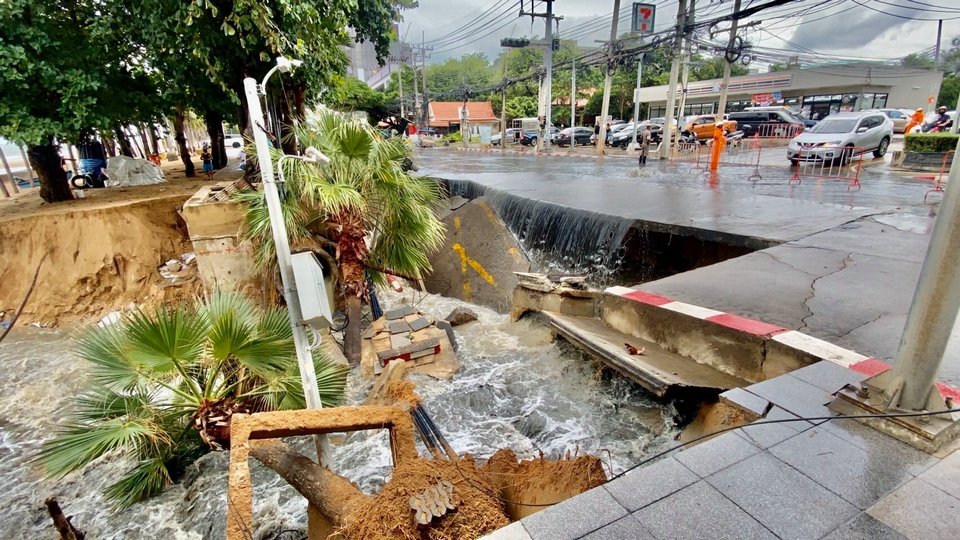
The month of September became a worthy paradigm for the entire year. Shown here, raging floodwaters washed away a large section of Jomtien Beach Road, adding to a string of disasters hitting the area. As the global pandemic continued (pestilence), the resulting economic collapse created long food lines never before seen here (famine). Monsoonal rains inundated villages (floods), while flames destroyed businesses, the largest being the Nashaa nightclub on Walking Street (fire).
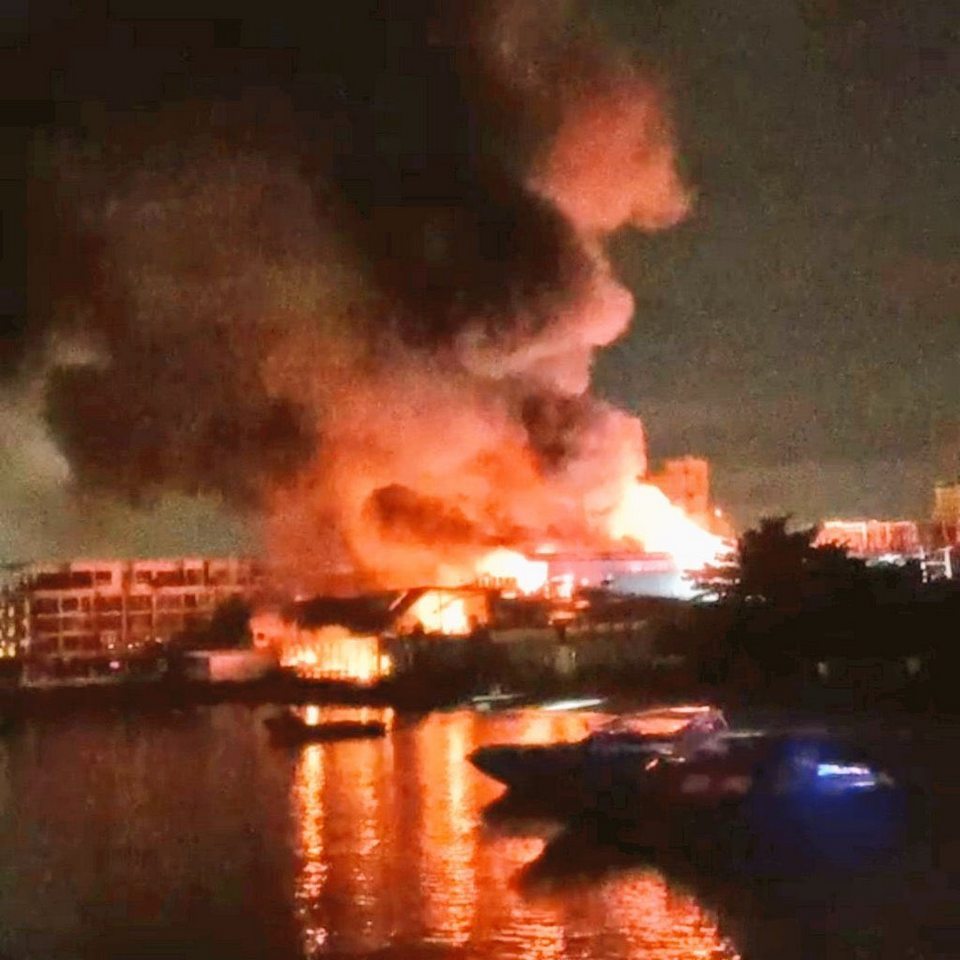
A ferocious fire destroyed the Nashaa Indian nightclub on Pattaya’s Walking Street on Sept. 12, injuring no one, but taking ten fire companies to extinguish. Nashaa, along with the rest of Walking Street’s nightlife businesses, had been closed since April. The blaze broke out after Pattaya’s 9 p.m. curfew, so the building and the street were vacant, save for a lone security guard. No firefighter injuries were reported.
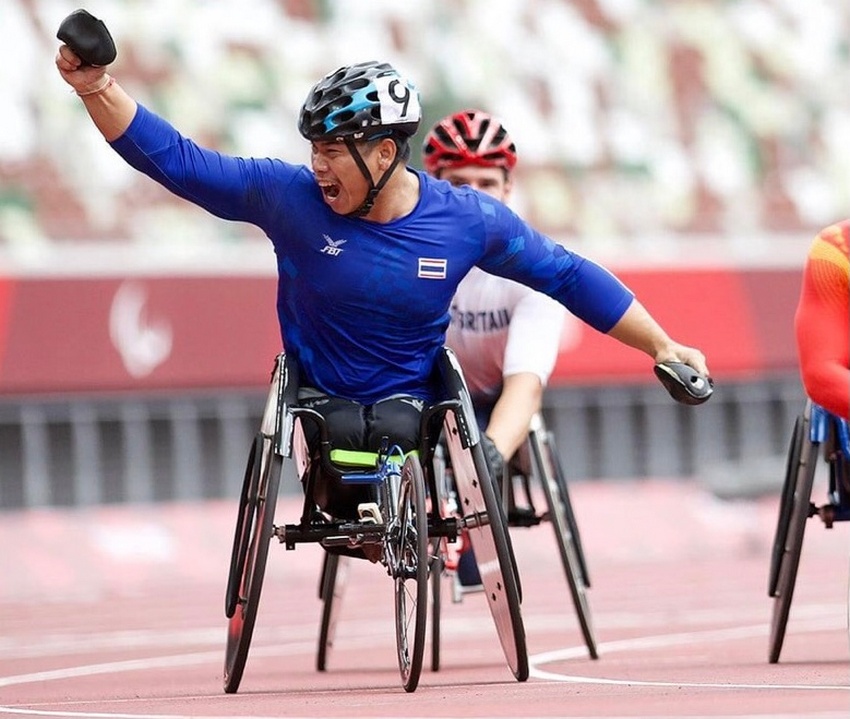
Former Pattaya student Putharet Khongrak won two bronze medals at the Tokyo 2020 Paralympics in Sept. 2021. Racing in the T54 category for athletes with normal hand and arm function but unable to use their lower limbs, Jay was not a favorite to win either the 1500m or the 5000m race, so crossing the line in third place was a huge accomplishment. Studies have shown that athletes winning a bronze medal are usually happier than those who win silver. Jay is certainly one happy young man.
October
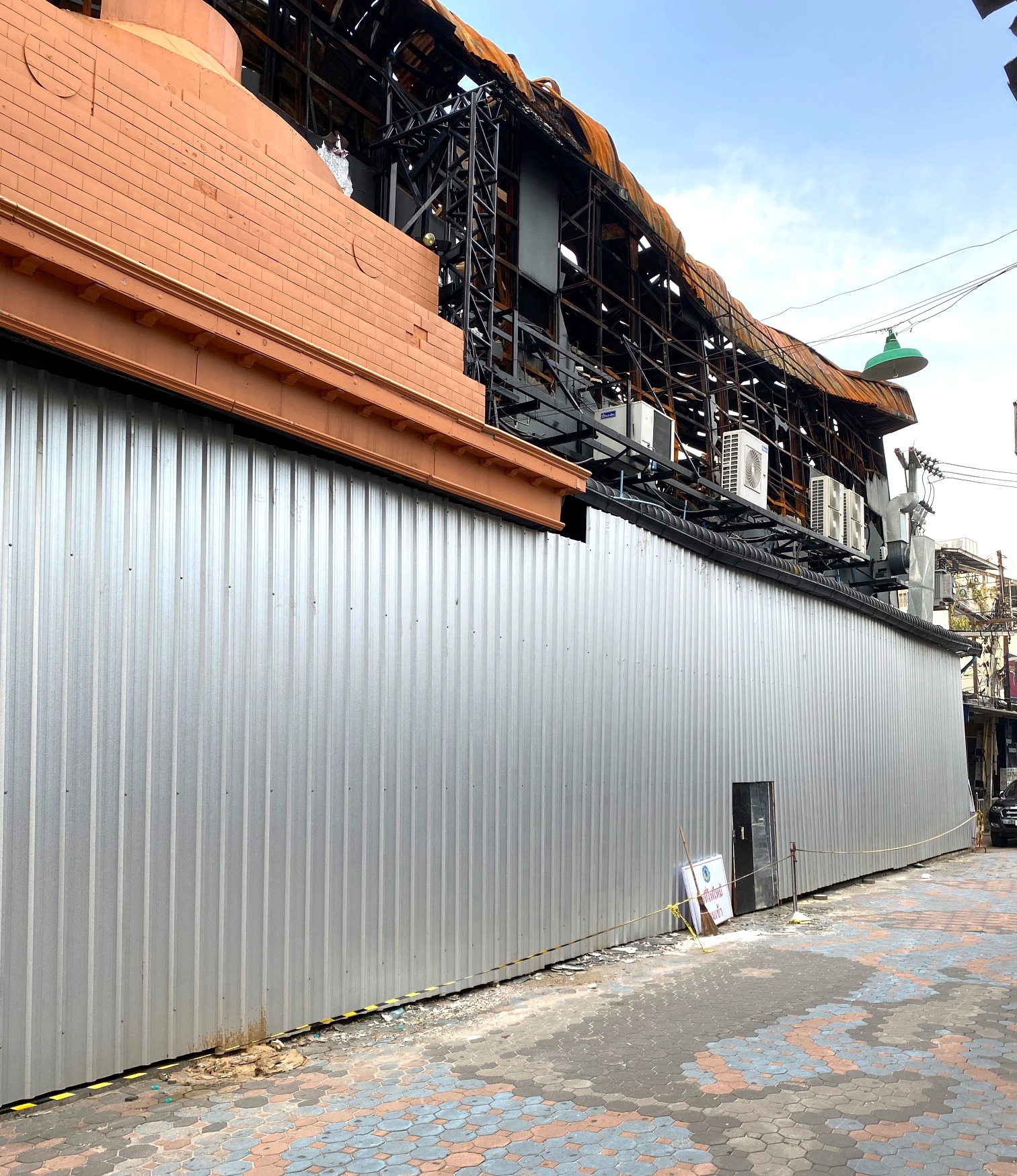
The fire-ravished Nashaa nightclub is now protected by a secure fence and tiny entrance, an eerie sign of the dramatic transformation of Walking Street from superior fun spot to ghost city doldrums. Many other buildings have been bedecked with similar sheeting for safety reasons, while the number of privately-hired security guards on duty throughout the one-kilometer area has tripled.
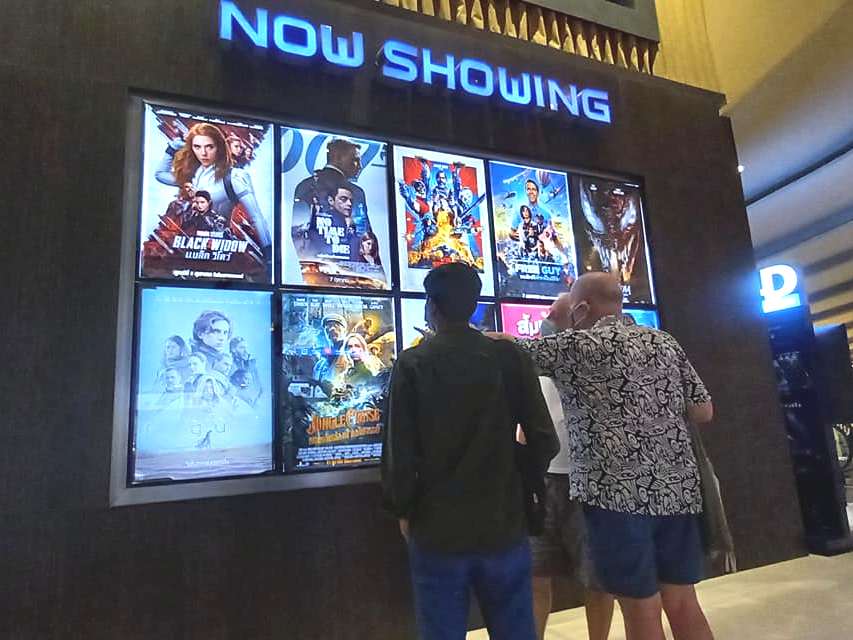
Prime Minister Prayut Chan-o-cha addressed the nation again in October, saying it’s time to face the coronavirus and live with it. He outlined the government’s plans to reopen this starving country and begin restoring the economy, starting November 1st. It would be a waste of space to regurgitate what he said in full, as by now it’s obvious none of that has happened. At least the movie theatres have opened.
November
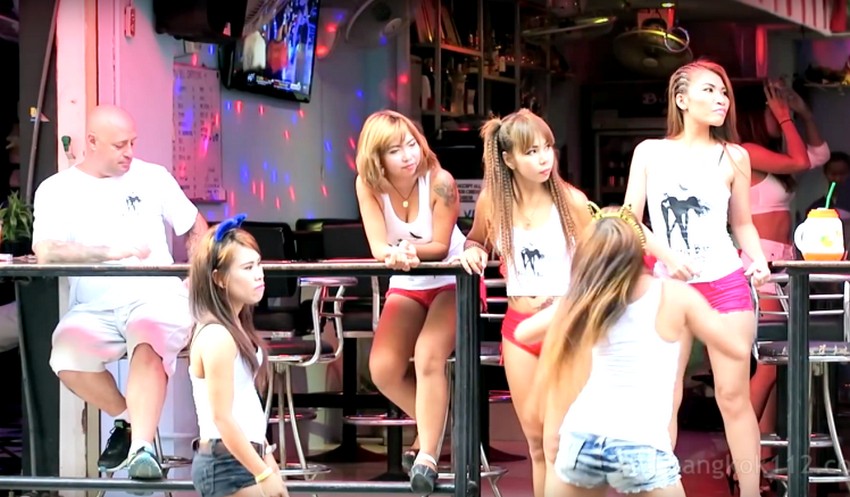
In November, Pattaya continued to struggle with sex-versus-quality tourism differences. The Tourist Authority of Thailand (TAT) trumpeted that the country must abandon its obsession with mass tourism. The answer in the post-pandemic era, we are told, will be sustainable growth and quality visitors. Pattaya may have a future to imitate Miami or Singapore, but that’s going to be many years away. In the meantime, the Thai authorities must be careful not to throw the baby out with the bathwater. For the moment, fully vaccinated traditional tourists should be made welcome. If they want a soapy massage in private or a cold beer in public, let them get on with it. What’s the alternative?
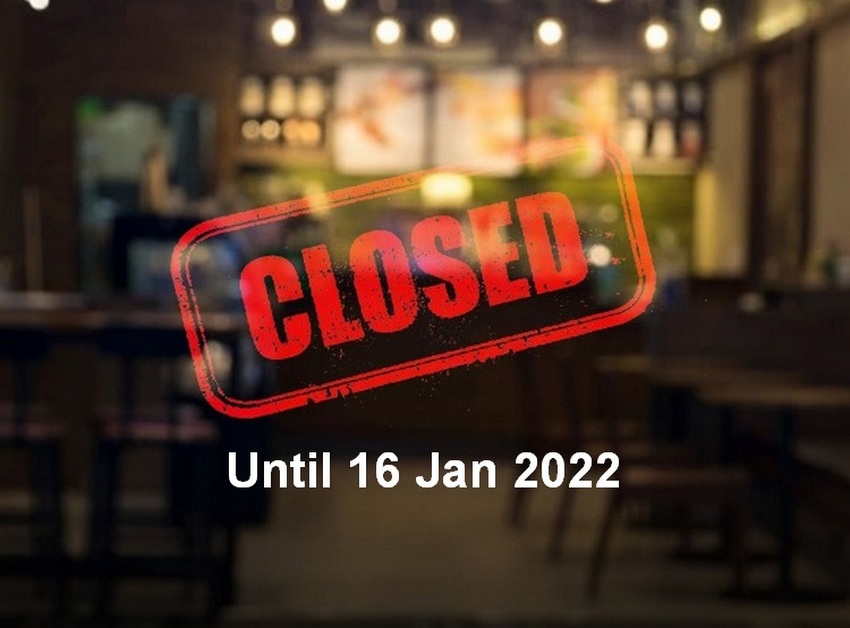
With the busy season on our doorstep and promises of a full reopening to welcome international tourists, the CCSA announced Nov. 12 not to allow pubs, bars and karaokes to open on Dec 1 as scheduled, but to postpone the reopening until after Jan 15, 2022. Just like that, another busy season was dead on arrival.
December
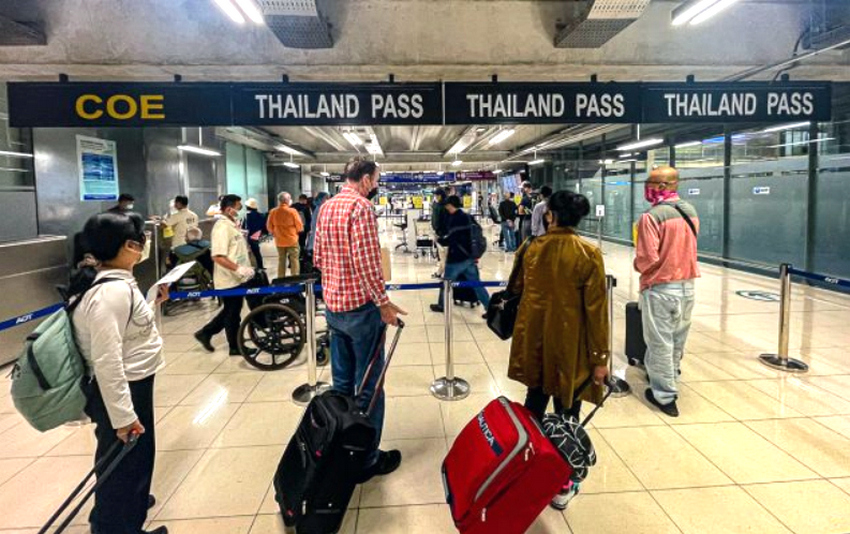
For what turned out to be a very short window, international tourists were allowed into the country with a Thailand Pass QR code for the misnamed “Test & Go” scheme. This allowed tourists, expats and returning Thais to stay only one night in a government-certified hotel while awaiting results of an RT-PCR coronavirus test before getting unrestricted access to the entire country. But that changed on Dec. 21 when Prime Minister Prayut Chan-o-cha rolled back Thailand’s reopening to foreign tourists, re-imposing mandatory seven-day quarantine for all international arrivals who haven’t already been approved. Without Test & Go, all arrivals would have to be confined to an alternative quarantine hotel for 14 days. And so it goes.
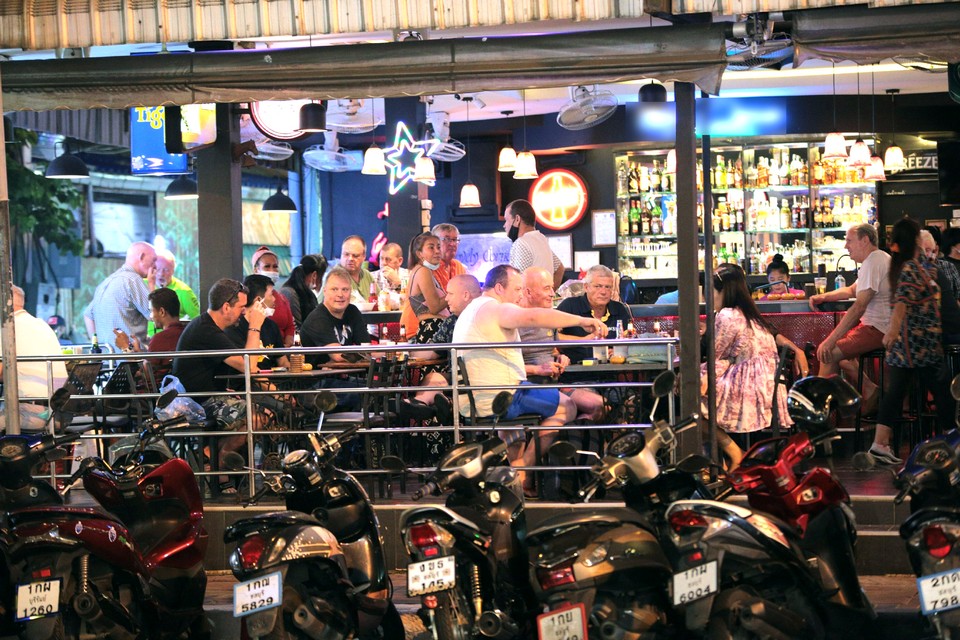
Somewhat of an olive leaf was extended for the winter holidays, allowing restaurants to serve alcohol with meals until 11pm. Turn off the lights, the party’s started. Showing how wide the loophole it is for “restaurants” to serve alcohol, the bar beers of central Pattaya are reopening with cold beer and available women, with food a mere afterthought. The combination of easy qualifications and lax enforcement that now only penalizes and keeps air-conditioned bars and nightlife entertainment venues closed has allowed watering holes – some with no kitchens – to pass themselves as restaurants.
A year of contrasts
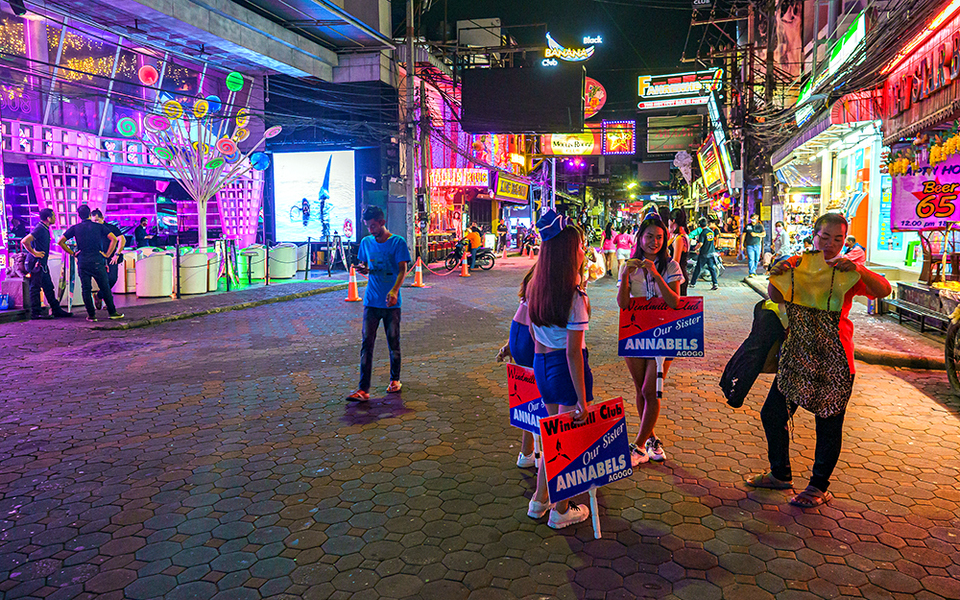
Walking Street looked lively in February, although with a noticeable lack of customers.
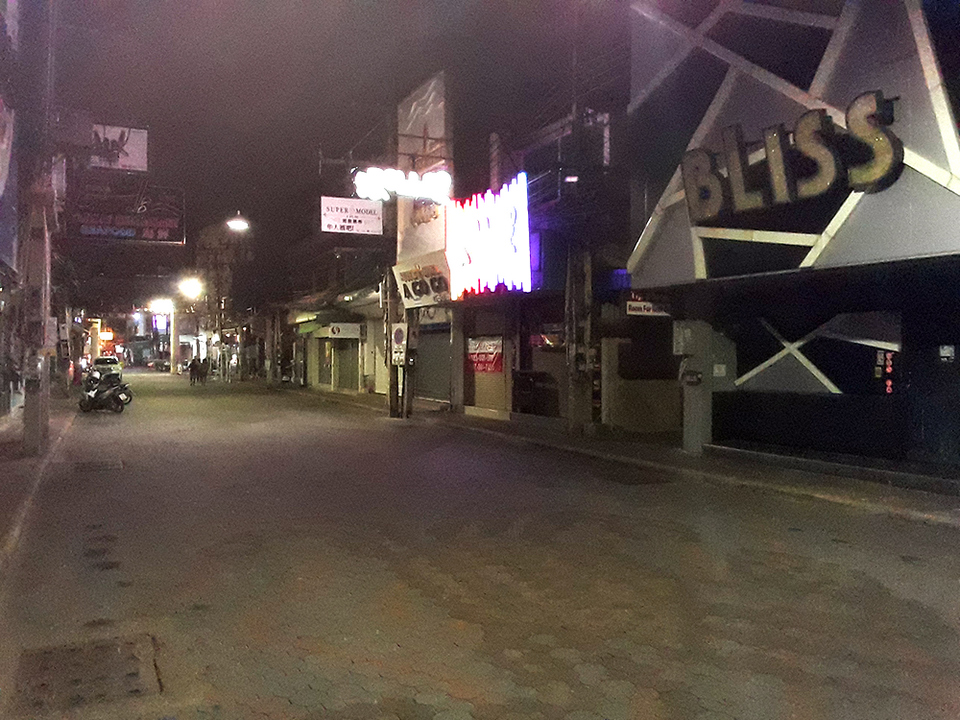
Then along came the lockdown and lockout. Chrome pole palaces remain closed.
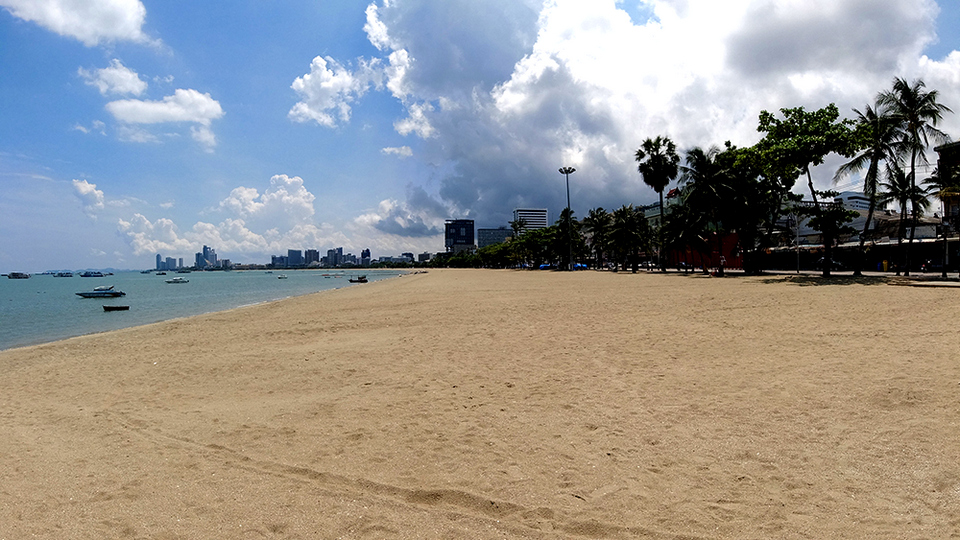
Pattaya Beach looks pristine and inviting when no one is allowed to use it.
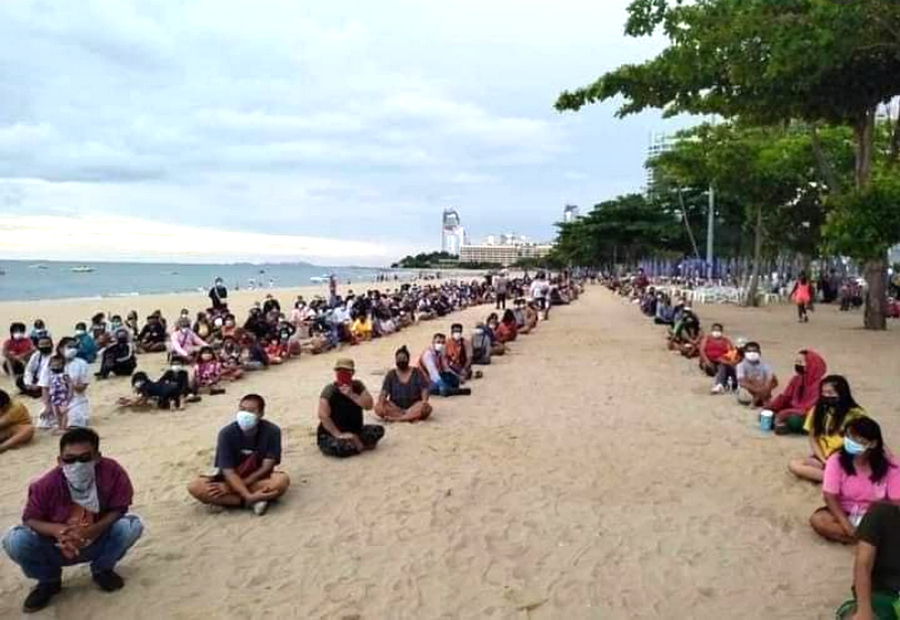
Hungry residents were told to sit on the hot sand and wait for their food. It was well-meaning but didn’t go over well on social media.
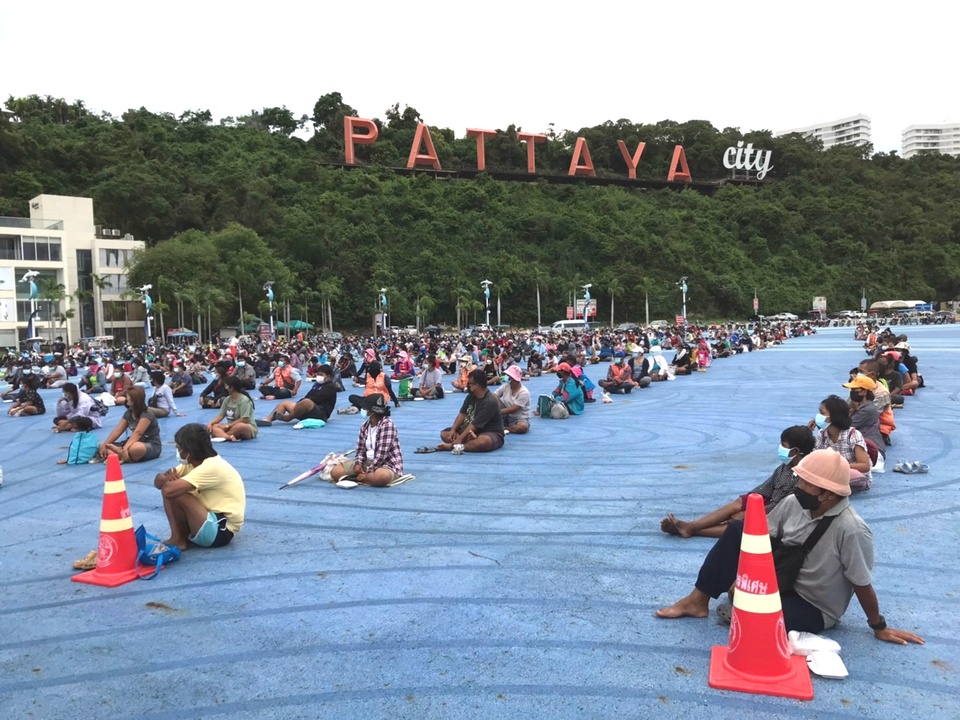
Food lines became brutally long before they were returned to
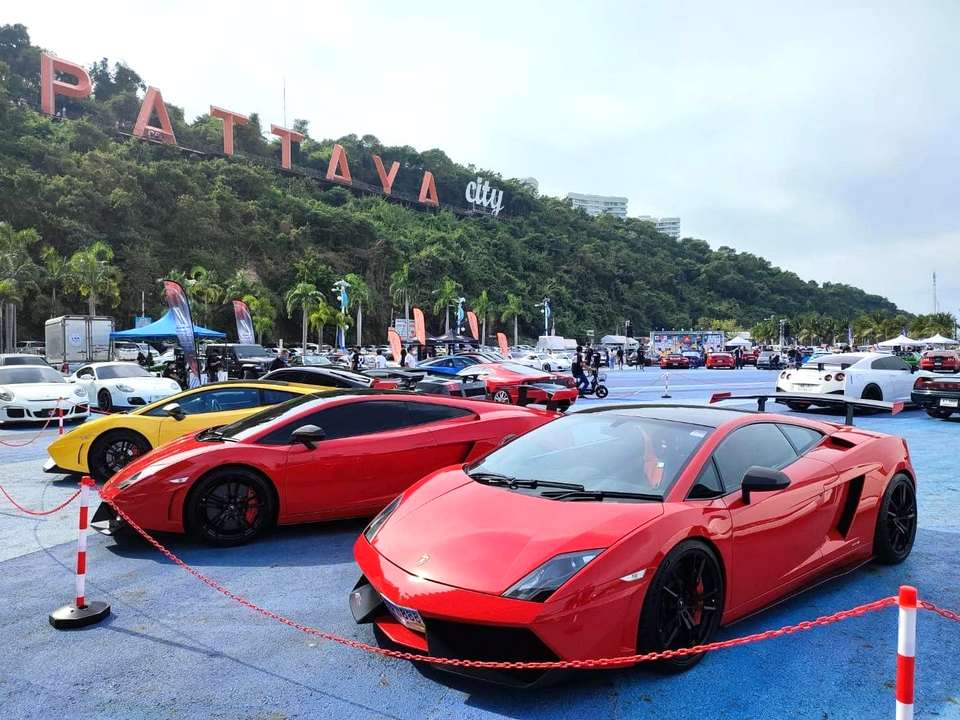
the rich and famous and their expensive cars.
 |
 |
 |





